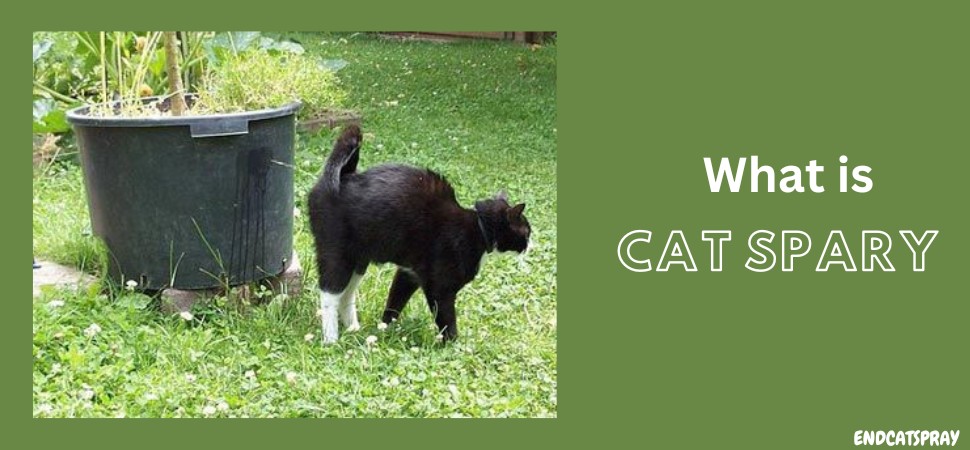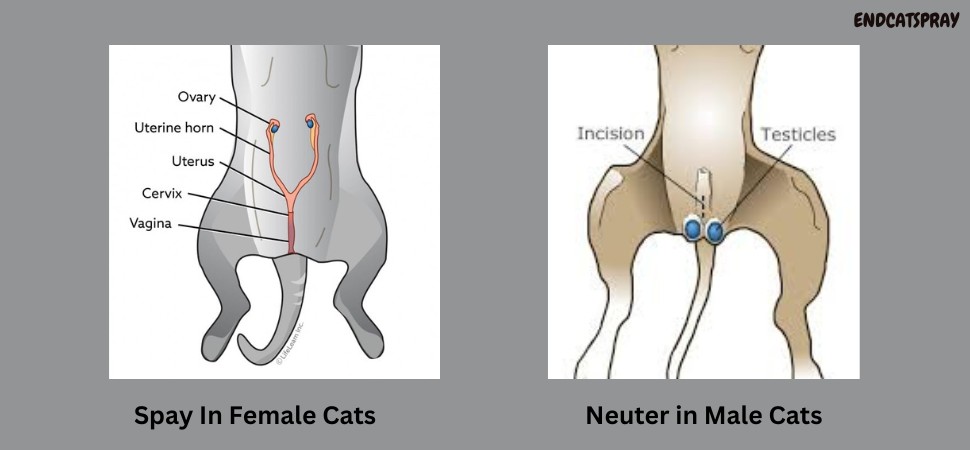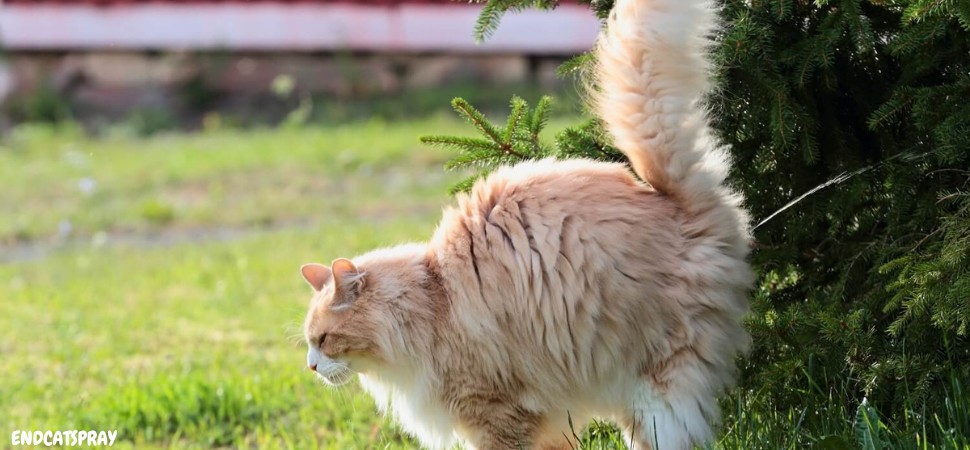Cats are the most fascinating and one of the most kept pets in the world. These cute creatures are very simple to maintain and very playful. They are very independent as well as self-groomers, but one of the traits that always confuses the cat keepers is when the cat starts spraying here and there.
Most owners wanted to know When do male cats start spraying. The male cat or Tom starts spraying when they reach the optimum age of 6 months to 12 months. So, we are here to answer the most frequently asked question about this puzzling behavior of cats, which is spraying here and there and causing concerns for cat owners.
We understand that the spraying of cats can change the minor inconvenience of this annoying behavior into a bigger issue for cat keepers if it is not addressed on time.
Key Takeaways of When do male cats start spraying
- The male cat or Tom starts spraying when they reach the optimum age of 6 months to 12 months.
- Cat Spray is made up of urine, which is a liquid that cat excrete.
- Cat spraying because of territory marking for communication.
- Sexual behavior is one of the major reasons for cats spraying.
- Neutering or spraying can help to reduce this behavior.
What is Cat Spray:

The first question we will answer before anything else is, what is cat spray? Or what is cat spraying? Cat spray is very much misunderstood when urinating in places without any reason. Cat spraying is one of the complex cat behaviors.
The cat is spraying when it is urinating a small amount on a mounted or verticle surface to show or indicate something. They not only communicate in this way but also use the urine and scent within the urine to indicate the identity of this cat. This is also a way to show the territory of the cat.
Cat spray is called cat Spray because it is not urine; it is a very small amount, and there might be a few drops of spray to show something. The spray, unlike urine, is concentrated in a small area and is sprayed on a verticle surface while the cat raises its tail.
Cat Spray is made up of urine, which is a liquid that cat excrete. The second thing that cat spray has is Pheromones, which are a special type of chemical compound that helps in “cat messages.” The cat spray also has Hormones, which are different types of chemical messengers. Female cats have estrogen Hormones, and male cats have testosterone hormones.
Why do Cats Spray?
We can never give a single answer to why cats spray or show spraying behavior. This perplexing issue for cat owners can be an issue for the cat itself. The basic reason behind cat spraying can be because of territory marking or scent marking for communication. But this is not it. We will discuss all the reasons underlying the behavior of cats spraying.
Reasons Why Cats Spray:
Cat spraying is a very common behavior among our feline friends. It is a common behavior in cats but very embarrassing for cat owners. By understanding all the major reasons behind cat spraying, we can develop a better understanding of the natural behavior of cats and responses to such incidents. Following are the detailed explanations of all the primary reasons behind cat spraying:
Sexual Behavior:
Sexual behavior is one of the major reasons for cats spraying. Mostly, when the cat is not neutered ( removal of sexual organs to prevent sexual activity and mating), it becomes sexually active and starts spraying to attract other cats, giving signals by marking its presence.
Unsprayed cats (cats that are medically sprayed to show less sexual behavior) are also said to show this behavior. For example, when the female cat is on heat, or the male cat is not neutered, they show more spraying behavior. Because spraying also shows the reproductive status of the feline friends.
Territorial Marking:
Cat spraying might be a symbol of territorial behavior. When the pet is introduced to a new place or new cat, it often marks its territory in the neighborhood. Cats are territorial animals, which means that they will mark their territory by spraying, and scent markers will tell other cats and animals that this area has this cat and that area belongs to that specific cat.
When cats spray and go by that area, the scent glands present in their cheeks, feet, tails, and other parts will convey signals about the other cats who sprayed. This is also done to show Dominance in the new place.
Stress and Anxiety:
Cat spraying is a frustrating issue, but it can be frustrating for your cats as well. In stress and anxiety due to being introduced to a new household or new environment, they tend to show this behavior of spraying here and there. They show spraying behavior to keep familiar scents near them in stressful conditions. We will discuss further how to cope with such issues.
Underlying Medical reasons:
Cat spraying can be a sign of a significant medical problem. The owners must consult the veterinarian doctor for diagnosis. UTIs (Urinary tract infections) are common causes of cat spraying. This caused discomfort in the urinary tract, which led the cat to urine outside the litterbox.
Cat spraying can be a result of kidney disease because kidney diseases can cause spraying and unwanted urination outside the litterbox. Diabetes can also be a reason for cat spraying. Cats with diabetes are likely to show changes in Urinary habits and metabolism.
Do Female Cats Spray:
Yes, female cats also spray urine. However, this behavior is very less common as in toms they also spray for many reasons. Queen spray because of their reproductive needs as well as communication. When female cats are in heat, they show their active sexual status by spraying nearby to alert male cats of their location as well as sexual receptivity.
They actually release special pheromones to attract male and signal their readiness by amplifying their scents. Female cats often spray to communicate with other cats as well. They spray to show their territory and specify their identity to other cats in the neighborhood. Just like male cats in stress, they tend to spray here and there as well. It is done to spread familiar scents near them to calm themselves.
What Age Do Cats Start Spraying:
It is very important to know at what age male and female cats start spraying as it informs about their health and behavioral changes.
Male cats typically start spraying when they are about the age of 6 to 12 months. It is an average age when they tend to be more mature and reach sexual maturity as well. They have an increasing level of hormones, so they start learning to communicate and be self-dependent.
Female cats start spraying earlier at the average age of 5 to 12 months. They spray for the same reasons as males. The increasing hormones or maturity leads to such behavior.
Cat spraying before puberty can be due to health problems, stress, or other underlying urinary problems. These problems must be observed and prevented with the help of proper consultation with a veterinarian.
What Does Cat Spray Smell Like:
Cat spray is not only an embarrassing issue to witness, but the smell they leave behind is also a problem. The cat spray has a very powerful smell. Following are the noticeable characteristics of cat spray.
Pungent:
Cat Spray has a very intense, musky smell. It is more pungent than the regular cat urine. It might be due to pheromones and other chemicals that help in communicating. If the smell is not properly cleaned, it can last for hours or even days.
Strong and Acrid:
The cat spray can be said to be sharp or strong to smell and acrid as well. This burning sensation in the nose can be caused by the complex composition of cat spray.
Astringent:
This smell can be explained as the sharp smell that dries out the nasal passage. This triggering smell can be easy to detect once it is smelt or experienced. This can be due to scent markers and other components in the Urine of cat Spray.
Organic smell:
As the cat spray is composed of mostly organic compounds, it smells organic. The cat spray is composed of VOCs (volatile organic compounds ), which are volatile and produce lingering odors.
How To Stop a Cat From Spraying:
Preventing cat spray can be a difficult task to manage, but not impossible. If we consider the right method for the right problem, this can be effectively reduced. Following are some primary methods to reduce and even eliminate this behavior in our feline friends.
1. Neutering and Spraying:

Neutering or spraying your cat can help reduce such behavior. As hormonal changes are behind cat spraying due to sexual changes, neutering cats can help prevent such things from happening. In males, neutering is done to reduce cat spraying, and in females, Spraying the cats with certain chemicals can have a job done in such situations.
2. Using Pheromone Diffusers:
Pheromone diffusers are also spray-like products that spray the chemicals that mimic Pheromones. These chemicals can mimic calming pheromones that cats often use to mark their territory. Using these diffusers where your cat can spray or where it sprays its urine can prevent such things from happening again and again in a better way.
3. Cleaning Thoroughly:
Cleaning the areas where the cat has sprayed can prevent your cat from attracting to such places again and again. Enzyme cleansing is an effective way to prevent your cat from spraying at the same places and even spraying in general. Cleaning the sprayed areas effectively and efficiently can reduce this activity.
4. Taking Positive Action:
Stress can be the reason your cats are often sprayed. You can eliminate this stress and confusion by taking the following actions.
- Take care of your cats by feeding them on time and playing with them regularly for some time.
- By cleaning the areas where cats are sprayed, we can maintain a hygienic environment in which the cats can thrive.
- Introducing new pets and toys can help manage stress.
- Providing a clean litterbox for them to spray and urine can help reduce cat spraying activity.
Conclusion:
Cat spraying is a common yet challenging task to manage, but with the help of proper preventive measures and behavioral adjustments, you can help your pet cat feel better about itself and be more secure at your place.
Every cat is different, and there are different methods that work differently on them, so we also need to be more observant and playful towards our feline friends and make a healthy relationship and a better understanding with them.
References:










